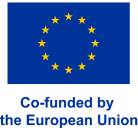SMART community-led transition for Europe's Rural Areas
SMART ERA
Funders

Project information
Project duration
-
Funded by
Horizon Europe - Innovation Action (IA)
Funding amount
381 750 EUR
Project coordinator
Fondazione Bruno Kessler
Unit and faculty
Contact information
Contact person
- Research Director, Regional Excellence (REx)+358 (0) 29 448 7852
Researchers
Project description
SMART ERA’s overarching objective is to increase 1) rural communities’ well-being, 2) resilience to shocks, and 3) capacity to innovate, by providing sets of smart solutions that can be interlinked into Smart Innovation Packages in order to efficiently tackle pressing socio-economic and environmental challenges and promote a smart and community-led transition pathway.
The availability of a skilled workforce and successful entrepreneurs comes from an active and educated population. Digitalisation will enable rural areas to have better access to the international business community. Together with the increasing trend towards multi-location in rural areas, it will enable a wider and partly location-independent labour market. This will attract highly skilled workers to rural areas, create new remote jobs in rural areas and enable location-independent digital entrepreneurship.
The project builds up on the iterative and collaborative Smart-Village approach which puts people and community engagement at the centre, complemented by a data-driven approach to investigate and effectively tackle negative socio-economic dynamics in rural areas. Municipalities of Alavieska, Kalajoki and Nivala from Northern Ostrobothnia region will be pilot areas for the service platform economy based solution that project develops in collaborations with enterprises. Solution is designed to improve both rural services and rural markets of microenterprises, small enterprises and middle sized enterprises.
Kerttu Saalasti Institute is leading WP2 and is one of the pilot pilot organizers. The Council of the Oulu region works as a community activator in the Northern Ostrobothnian pilots. The project is led by the Fondazione Bruno Kessler from Trento, Italy. The project has 25 partner organisations from 10 European countries. The University of Oulu Kerttu Saalasti Institute has a budget of 381 750 € out of a total of 6,59 M €. The Council of the Oulu region´s share is €188 250.